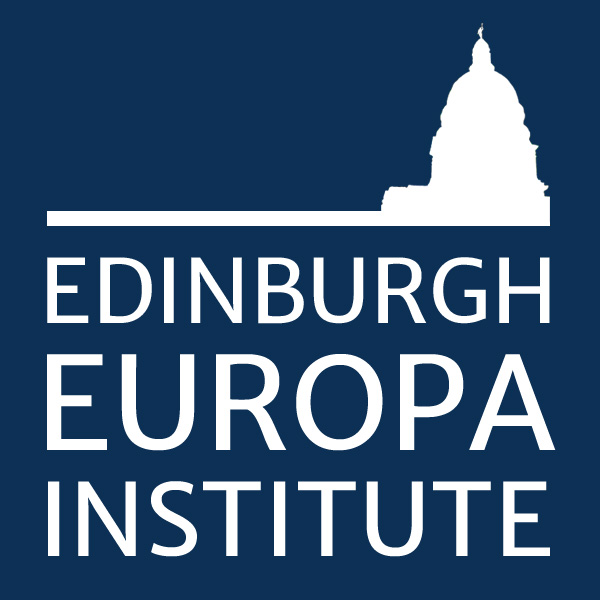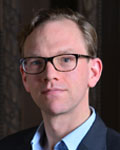Chad Damro, Elke Heins and Tobias Lock
The European Union (EU) faces a time of unprecedented challenges, including but not limited to, the rise of populism, Brexit, relations with neighbours and crises in euro governance, refugees and rule of law. To engage with and strengthen analyses of European futures at this crucial crossroads in its history, the University of Edinburgh’s Europa Institute has recently been awarded a three-year Jean Monnet Centre of Excellence, supported by the European Union’s Erasmus+ programme. The new FUTURES Jean Monnet Centre of Excellence (JMCE) represents an ambitious and interdisciplinary effort to analyse such challenges – and opportunities – and reflects the sustained commitment of the University of Edinburgh to continue engaging with and about Europe and the European Union into the future.
The relaunch of the successful European Futures blog is an integral component of the new Centre’s forward- and outward-looking strategy. The blog serves as a centrepiece of the first-class programme of activities designed to address timely issues and reach a wide European and international audience. The JMCE will also take advantage of other technologies and online platforms – including social media platforms and Open Educational Resources – to give greater visibility to EU studies at the national level and to maximise impact and dissemination.
In addition, we are excited to be able to organise a range of innovative activities through the JMCE, including a major launch conference, visiting practitioner programme, visiting scholar programme, interdisciplinary PhD workshops and an edited volume on Interdisciplinary European Futures: From Local to International. Our ambition for these activities is to improve understanding of the EU; create research and publication opportunities on the EU; create interdisciplinary research synergies; develop links between academics, students and practitioners; enhance the educational environment for students working on EU topics; and encourage civil society and public engagement in EU topics and studies. The Centre will also develop new coordination and support for the work of student bodies at the University of Edinburgh, particularly the undergraduate EU Society and the PhD Europa Research Group.
With its renowned expertise on EU politics, law and public policy, the University of Edinburgh is the ideal location to develop such new and interdisciplinary ways to understand challenges and exploit opportunities in European futures, for the benefit of various stakeholders engaging Europe from the local to international levels of governance and policymaking. The Centre also has a strong transnational character through its establishment at the University of Edinburgh, which experienced a 50 per cent increase in international student enrolment over the last five years. By engaging directly with this growing international student community, the Centre is excited to offer resources and opportunities to students and young professionals from across the globe to equip them with knowledge of EU and European subjects relevant for their academic and professional lives.
The JMCE’s launch in 2018-19 coincides with the 50th anniversary year celebrations of the University’s Europa Institute. Founded in 1968 – before the United Kingdom (UK) was a member of the EU – the Europa Institute can claim to be the longest-established specialist institute of its kind in the UK and one of the oldest in Europe. From its inception, the Europa Institute has developed as one of the pre-eminent interdisciplinary centres in the UK for the study of the politics, policies and law of the EU. Building on a substantive institutional legacy and an outstanding academic record, the Institute’s main purpose is to facilitate teaching, research, knowledge exchange and public debate on the processes of European integration as well as current and future challenges faced by the EU and its member states. The Institute’s members come from various disciplines within the School of Social and Political Sciences (SPS) and the School of Law working on diverse EU-related subjects as well as postgraduate research students from several university subject areas.
Dr Chad Damro (Politics & IR) will serve as the new JMCE’s Academic Coordinator, alongside Dr Elke Heins (Social Policy) and Dr Tobias Lock (Law) serving as Co-Coordinators. In operational and planning terms, the Centre draws primarily from three disciplines – Politics and International Relations, Social/Public Policy and Law. In addition to its Coordinators, the JMCE is supported by an interdisciplinary group of Edinburgh scholars who serve as key members of the Centre. This internationally renowned group includes Professor Jo Shaw (Law), Professor Niamh Nic Shuibhne (Law), Professor John Peterson (Politics & IR), Dr Carmen Gebhard (Politics & IR), Professor Jochen Clausen (Social Policy) and Dr Sotiria Grek (Social Policy).
As part of its programme of activities for 2018-19, the JMCE’s launch conference will take place in April 2019. For more information on the JMCE and its activities, please visit FUTURES Jean Monnet Centre of Excellence
 Chad Damro
Chad Damro
University of Edinburgh
Dr Chad Damro is Senior Lecturer in Politics and International Relations and Co-Director of the Edinburgh Europa Institute at the University of Edinburgh. His research areas include international relations, international political economy, transatlantic relations and the EU in the world.
 Elke Heins
Elke Heins
University of Edinburgh
Dr Elke Heins is Lecturer in Social Policy at the University of Edinburgh. Her research interests include comparative welfare state policies, labour markets, unemployment policy and health policy. Her recent publications include Sovereign Debt Crisis, the EU and Welfare Reform (Palgrave Macmillan, 2016).
 Tobias Lock
Tobias Lock
University of Edinburgh
Dr Tobias Lock is Senior Lecturer in European Union Law and Co-Director of the Edinburgh Europa Institute at the University of Edinburgh. His research focuses on the EU’s multilevel relations with other legal orders, including the European Convention on Human Rights.
Shortlink: edin.ac/2qBVjQV | Republication guidance
Please note that this article represents the view of the author(s) alone and not European Futures, the Edinburgh Europa Institute or the University of Edinburgh.
 This article is published under a Creative Commons (Attribution-NonCommercial-NoDerivatives 4.0 International) License.
This article is published under a Creative Commons (Attribution-NonCommercial-NoDerivatives 4.0 International) License.


